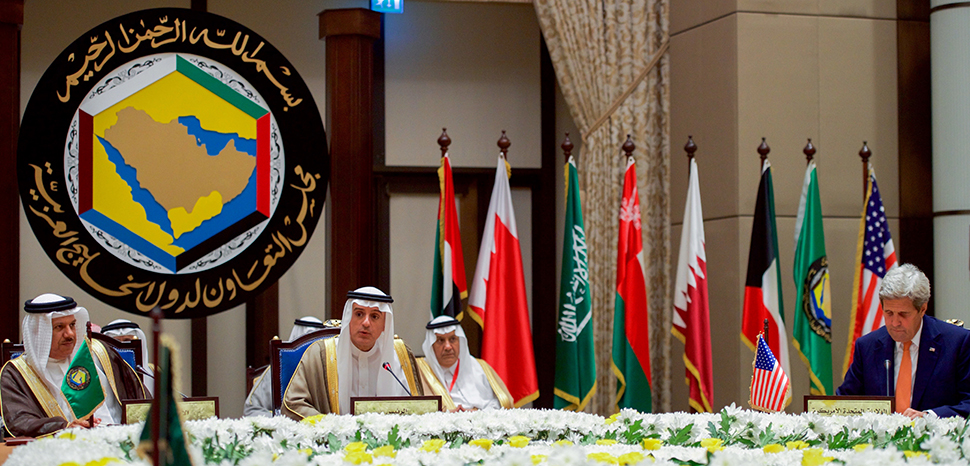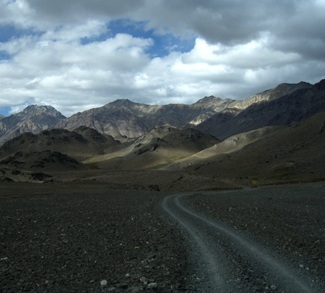China is the largest trading partner of Saudi Arabia and the second largest natural gas importer of Qatar, Kuwait, and Bahrain. The GCC countries have been trying to diversify their economies, and Chinese investments in non-oil sectors have enabled them to build stronger ties with the region by investing in both oil and other sectors. China’s growing investment in GCC’s diversification is however met with certain complex geopolitical realities that both parties will have to navigate to make the engagement a success.
Owing to its oil needs, China’s state-owned companies have invested and engaged with oil companies in the region. Sinopec-Saudi Aramco’s MoU to collaborate further on pre-existing joint ventures (YASREF), CNPC-Adnoc joint venture, transfer of stakes of CNPC in Adnoc to CNOOC, CNPC’s contract with Kuwait Oil Company on rig supply, etc are some key deals that prove the growing cooperation between the oil companies of China and the GCC. However, China understands the need to engage on multiple fronts to have a holistic relationship with the GCC countries. China’s Foreign Minister Qin Gang emphasised the importance of GCC countries to China and talked about signing a ‘free trade agreement’ to further deepen the economic ties. The interest to expand cooperation into other sectors such as infrastructure, finance, telecommunications, space exploration, renewable energy, nuclear energy, and other high-potential sectors, has been taking a stride in the discussions between the two sides.
China’s approach towards the GCC is also fueled by its ambitious BRI project. Foreign investments in key infrastructure are dominated by Chinese firms in the region. China’s industrial investments in the Khalifa port of the UAE, FDI in Kuwait’s infrastructure, Bahrain’s housing sector, and Qatar’s Lusail Stadium are some prominent examples.
The Covid-19 pandemic paved the way for investments in green energy projects in the region. In 2022, there was a substantial increase in the number of green and sustainable bonds signed. However, with China being one of the leading exporters of solar products, the impact of the slowdown in China’s manufacturing sector has had some impact on GCC’s diversification process. The pandemic also provided China with the opportunity to increase its engagement with the GCC employing vaccine diplomacy and cooperation on the global health front. In this regard, the China-UAE partnership has been notable with UAE becoming a hub for the production of the Sinopharm vaccine.
The GCC member states have been increasingly investing in green energy projects to move towards renewable sources of energy. They are setting up wind farms, investing in hydrogen fuel, nuclear energy, etc. and it is expected to only increase in the future. The region’s arid climate offers a suitable and profitable destination for producing solar energy. The price at which solar energy is produced in the region is one-third of the global average. However, this move is dependent on external factors. China is one of the leading exporters of solar parts. To make a shift towards renewable energy, the GCC countries are dependent on those solar parts. Due to lockdowns in China, several solar projects in the region have been struggling to cope with the increasing cost of obtaining PV modules (essential in producing solar energy).
In recent years, nuclear energy has been of particular interest to the GCC countries as they are attempting to reduce their dependence on oil and diversify to fulfil their domestic needs to utilise the uranium reserves present in the region. However, the future of this engagement taking a turn towards the upgradation of uranium fuel to weapon-grade level has become a matter of concern for the United States. Even if such intentions exist, this possibility may take years to fructify.
In the backdrop of growing China-GCC ties, the question of China’s balancing act between Iran and the GCC states gains prominence. With Iran as well as Saudi Arabia vying for regional dominance, China’s role becomes both crucial and complicated. Although China has stayed out of regional crises and disputes, the Saudi-Iranian rivalry has grown over the past two decades, making it more challenging for Chinese leaders to strike a balance between Beijing’s relations with both states. Having signed a ‘strategic partnership agreement’ with both Iran and the GCC, China walks on a tightrope. However, the recent ‘normalisation’ talks between Riyadh and Tehran facilitated and mediated by China have further solidified China’s economic and diplomatic role in the region. This marks the first instance of Beijing’s direct involvement in brokering peace between the two rivals in the region.
The Gulf China Summit for Cooperation and Development held in Riyadh in December 2022 was principally driven by energy interest amid volatility in the global energy markets following the Russia-Ukraine war. This summit marked a major shift in Beijing’s policy towards the Gulf region with GCC as well as China signing a five–year joint action plan to establish a strategic dialogue and extend their cooperation beyond oil trade. The summit hinted towards the establishment of a new economic order with more investment and cooperation in advanced technology, the integration of the Arab economies with China as well trading of the Gulf oil on the Shanghai Stock Exchange. It also indicated the strengthening of the Belt and Road Initiative. Additionally, this summit marked the first time that China explicitly called out Iran for its destabilising activities in the region as well as for not adhering to the rules set out by the JCPOA. This shift in China’s foreign policy is seen as imperative to China’s sustenance in the region mainly because engagement with the GCC provides China with more scope to establish its footprint in West Asia. China has shown its support for the peace process in the West Asian region in its Arab Policy Paper released in 2016. The policy paper mentioned mutual non–interference in internal matters as one of the core principles of engagement.
However, the year 2023, has seen a revival of ties between China and Iran with Iranian President Ebrahim Raisi being hosted by President Xi Jinping in February 2023. The meeting marked an attempt by Iran to develop ties with Beijing and Moscow amidst heavy sanctions by the West.
The growing great-power rivalry between China and the U.S. has manifested itself in West Asia and pushed the GCC countries to balance the two. With Beijing’s increasing engagement in the region, the GCC seems to have found another partner in China, apart from the traditional US option. US–GCC ties suffered a setback with the GCC states taking decisions independent of US influence. The denial of the US administration’s demand for more oil production in OPEC+, and the neutral stance on the Ukraine War are instances of the Arab monarchs trying to demonstrate their strategic autonomy. This new dynamic has paved the way for China to establish stronger ties with these countries.
The post-pandemic world could be said to be characterised by a rivalry between China and the United States. West Asia, however, becomes a region where there can exist a symbiotic relationship between the two as the more stable the region, the better. As such, China benefits from the stability that the US presence in the region brings.
Both the GCC countries and China stand to gain a lot from this strategic partnership but will have to navigate and balance their relationships with other actors. As China has strong bilateral relations with Iran and the GCC countries that are mainly based on economic ties as opposed to the US’s security engagement, it has more scope to manoeuvre within the region. The success of the relationship would essentially depend on the ability of the GCC to exercise its strategic autonomy and navigate its ties with both China and the US.
Sakshi Chaudhari is a postgraduate research scholar at the Department of Geopolitics and International Relations at the Manipal Academy of Higher Education, Karnataka, India.
Vidya Paragi is a postgraduate research scholar at the Department of Geopolitics and International Relations, Manipal Academy of Higher Education, Karnataka, India.
The views contained in this article are the authors’ alone and do not represent the views of Geopoliticalmonitor.com or the Manipal Academy of Higher Education.




